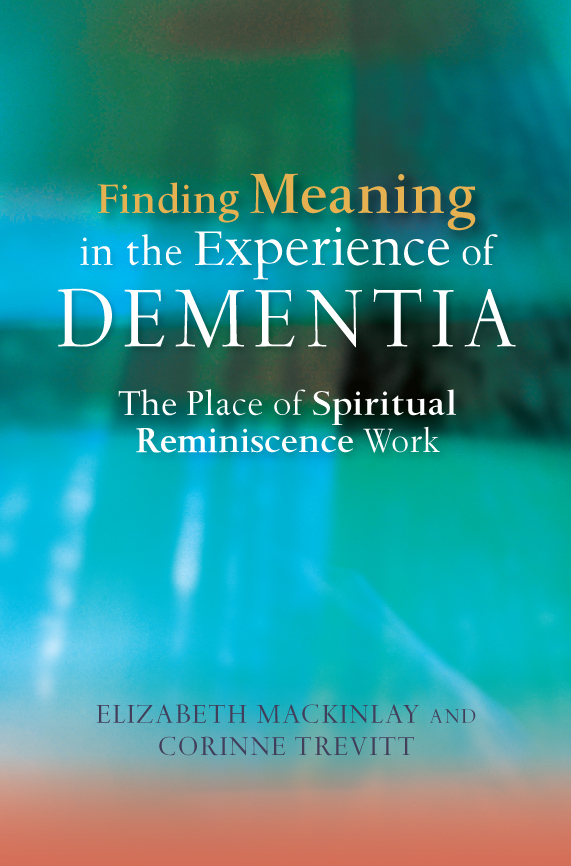
Finding Meaning in the Experience of Dementia by Elizabeth Mackinlay and Corinne Trevitt is based on the findings of the first major study on spiritual reminiscence work with people with dementia. This extract explains the role of the facilitator in spiritual reminiscence groups.
The communication strategies demonstrated by the facilitator could ‘make or break’ a group. When listening to the recordings of spiritual reminiscence groups it was interesting to note how much the difference between responses depended on the group facilitator’s style. Prior to the commencement of the project in each facility, the group facilitators had training in techniques to enhance their communication and group facilitation skills. The research assistant present at all the group sessions was of considerable assistance in assisting with challenging communication issues and in debriefing the facilitator at the completion of each session. It was good if the facilitator had had the experience of being a participant in a spiritual reminiscence session, prior to facilitating a group themselves.
The facilitator had to be very comfortable with the notion of personhood and be able to identify the behaviours that led to ‘malignant social psychology’ (Kitwood 1997). In addition, s/he needed to have a good understanding of the elements of behaviour that encourage person-centred care and also the guidelines for managing reminiscence activities. In the following example the facilitator gave as much time as needed to help Jessica find what she wanted to say. By just affirming that she was still listening, the participant was encouraged to keep going – to try to find the right words. The interaction also identifies how frustrating it can be for people with dementia to join in and contribute when words are difficult to find.
Facilitator: Mmm.
Jessica: I want to do it, but I am slow. And that is the main problem I think, that I am slow at doing these things. I know how to do it, but it doesn’t come.
Facilitator: Mmm hmm.
Jessica: I am slow to get that done, and I keep thinking about it, but it is not coming as quickly as I wanted to, and I am slowly exasperated.
Facilitator: Mmm.
The facilitator also needs to be aware of his/her own spirituality, to be comfortable with the types of questions asked in spiritual reminiscence.
Questions such as:
• What gives you most meaning in your life?
• What does spirituality mean for you?
• What makes you feel happy or sad?
• What has brought you joy?
• What do you look forward to as you come near the end of your life?
Questions of God and religion were also asked in the groups, and facilitators had to be comfortable with their own spirituality so they could facilitate these topics in discussion. One facilitator in the study decided not to continue facilitating a group as, although she felt this was important work and she attended church regularly, she did not feel comfortable speaking about religion with others.
An essential beginning for group work is respect by the group facilitator for the group members and a willingness to meet them where they are in their life journeys. The skills used in small groups are those used by the helping professions – first, active listening and being really present with the participants.
Effective facilitation of group participation includes using appropriate and open-ended questions and then allowing space and silence while the individual reflects. It includes the use of paraphrasing, unconditional acceptance and the skills of focusing and summarising.
In spiritual reminiscence, it is best to focus on the meaning of events and experiences in the lives of the participants rather than simply on the description of the events remembered. This moves the conversation to a deeper level and enables a review of life meaning. Spiritual reminiscence is one of the spiritual tasks of ageing, and as such an important component of the life journey; it is so much more than simply an activity.
*This article is adapted from Chapter Twelve: Maximising Effective Communication.